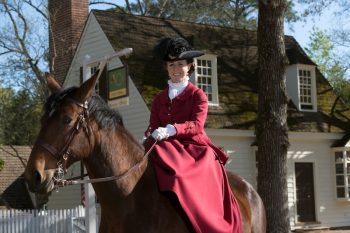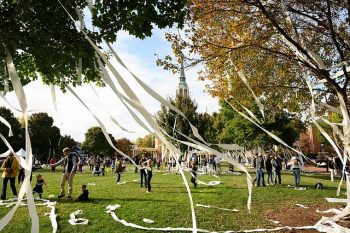Teaching, research, mentoring, leadership and service sum up the life’s work of a Wake Forest alumnus who recently received one of the highest distinctions in the field of mathematics.
Phillip A. Griffiths (’59, SCD ’73) was recently honored
with the 2014 American Mathematical Society Leroy P. Steele Prize for Lifetime Achievement.
Griffiths is professor emeritus at the School of Mathematics at the Institute for Advanced Study in Princeton, N.J. The award honors his wide-ranging contributions to the field of mathematics and to the profession, including groundbreaking work in algebraic geometry, differential geometry and differential equations, as well as mentoring students who have gone on to stellar careers in mathematics and other disciplines. “His example of service and leadership has inspired so many in the mathematics community to emulate him to some degree, and our mathematical world is much the richer for it,” reads the prize citation.
Griffiths, who earned his BS in mathematics and received an honorary Doctor of Science degree in 1973, answered a few questions for Wake Forest Magazine.
Where are you from originally and how did you find your way to Wake Forest?
I’m from North Carolina and spent much of my childhood in Raleigh, which is of course near the town of Wake Forest. Although I’d been at a military institution in Georgia for high school, I wanted to go to an institution close to home. Even though Wake Forest University had just moved to Winston Salem, it was attractive to me as a small undergraduate and liberal arts-oriented university.
Were there Wake teachers who nurtured and inspired you?
The people in the mathematics department were all extremely encouraging and supportive of my interest in mathematics. I especially remember the chairman of the department, Dr. Ivey Gentry, who among other things suggested that I do self-study and gave me great latitude to do so.
Did you always have a love for mathematics? What about the field intrigues you?
Although I always liked mathematics, I never really developed a love for it until I “caught the bug” from my mathematics teacher Lottie Wilson at Georgia Military Academy. From then on, even though I thought about doing other things, mathematics was the only thing I really wanted to do.
You have received a lifetime achievement award. What do you consider to be your greatest contribution to the study of mathematics and the math profession?
The greatest contribution would be the work I’ve done with students, collaborators and colleagues over the years and what we’ve been able to accomplish in the field of mathematics as a group.


